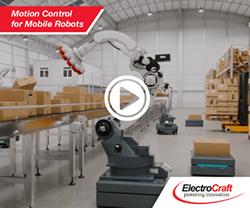Here, Ryan Guthrie, vice president at TM Robotics, distribution partner of Shibaura Machine, explains how advanced robot controllers can provide enhanced troubleshooting in smart factory settings - while prioritizing data security.
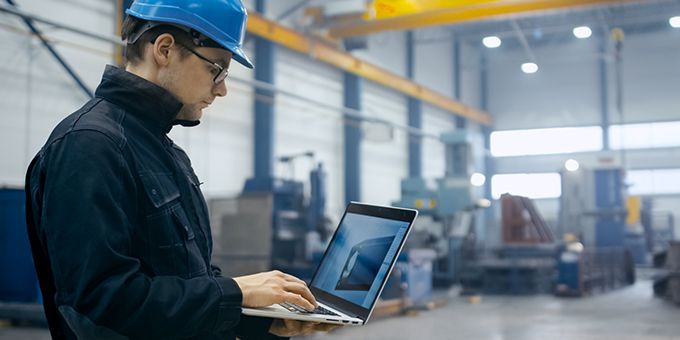 Troubleshooting Robots - Enhancing Manufacturing Security Through Innovative Troubleshooting
Troubleshooting Robots - Enhancing Manufacturing Security Through Innovative Troubleshooting

Ryan Guthrie, VP | TM Robotics
A 2022 report by Capgemini identified an “increasing frequency of cyberattacks” against smart factories, which had affected 40 per cent of the surveyed organisations with 73 per cent of incidents occurring in the previous 12 months. The report concluded, “It is critical for organisations to ensure that cybersecurity is prioritised at their smart factories.”
Industry 4.0-assisted troubleshooting and maintenance in factories — or Maintenance 4.0 — presents a paradox. On the one hand, maintenance managers have an onus to deploy Maintenance 4.0 wherever they can, to reduce machine downtime and increase factory output by accurately predicting machine failures. One the other hand, new cybersecurity concerns will be introduced due to the plant’s interconnectivity.
This paradox is matched by real-world restrictions on the shop floor. Many manufacturers now restrict the presence of external devices, like laptops, on factory floors due to security concerns. This is an obstacle for maintenance engineers, who previously relied on the ability to wheel over a trolley to an industrial robot and then troubleshoot through a PC or laptop.
How can maintenance engineers grow their Maintenance 4.0 systems, while also guarding against the cyberthreats posed by a broadened attack surface? Fortunately, a solution lies in troubleshooting solutions that don't rely on traditional PC-based methods — specifically, the use of Secure Digital (SD) memory cards.
SD memory cards
Most people are familiar with SD memory cards. They have been used for years in digital cameras, and other consumer devices, to easily store and transfer data.
However, these small and secure plastic cartridges also have great potential in industrial environments — which includes rapidly cloning robots with unparalleled efficiency. When an industrial robot encounters issues, an SD-copy function allows technicians to create a complete duplicate, or clone, of the robot’s data. This is as simple as removing an SD card from one robot or controller and placing it into another, transferring all of the robot’s programs, parameters, settings and software in a matter of seconds.
The increasing popularity of SD memory cards complements another growing strategy among manufacturers: deploying multiple machines with the same design to enhance efficiency. This method involves using multiple, similarly designed robots across various manufacturing lines, each with slight variations in their programming.
A key advantage, here, is that manufacturers can easily swap one robot for another if one unit malfunctions or fails completely. When troubleshooting is not a quick fix — or during shifts with limited training or support — the malfunctioning robot can be quickly replaced with a spare. This allows production to continue seamlessly, while the troubleshooting process is conducted offline and away from the shop floor to avoid disruptions to productivity and profitability.
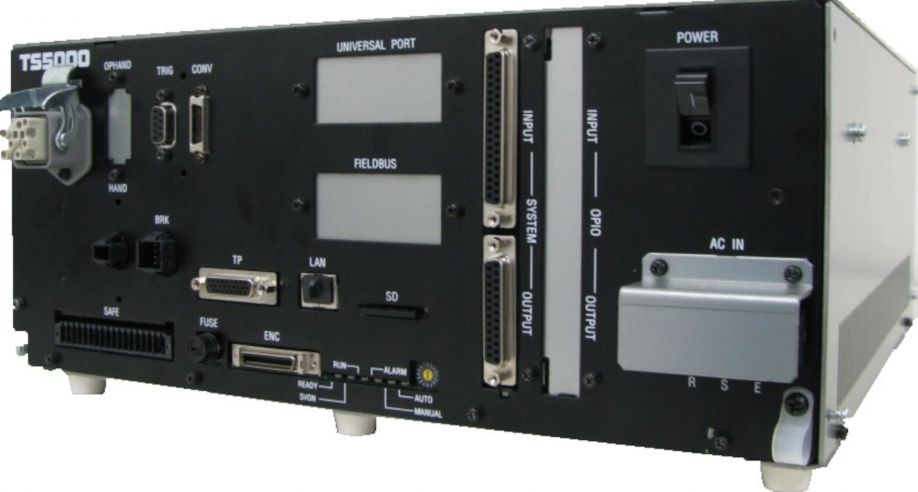
Shibaura Machine has integrated a SD-copy function into its TS5000 robot controller.
Because of these advantages, TM Robotics, as the distribution partner of Shibaura Machine, has embraced SD cards as a simple yet powerful, PC-free solution for robot troubleshooting. Shibaura Machine has integrated a SD-copy function into its TS5000 robot controller. The controller itself is designed to support precise movements and shortened cycle times with SCARA robots. With an SD-copy feature, the TS5000 now allows an even more rapid and complete transfer of programs and settings between robots. Let’s examine how.
High-security standards
A manufacturer based in Mexico was facing the challenge of maintaining its industrial robots, while also applying stringent security measures. The nature of the company’s work, manufacturing components for major data centres, demanded especially strict security protocols — data centre components must meet a plethora of security standards, and must be equipped with IP address monitoring, firewalls and more.
Use of external devices, like laptops, was severely restricted on the customer’s shop floor and traditional troubleshooting methods, involving PC-based, solutions were impractical in such a context. Given the high-security standards and the prohibition of laptops, the TS5000’s SD-copy feature emerged as an invaluable tool.
For the Mexico-based manufacturer, the SD-copy function facilitates the transfer of all essential data including programs and settings without the need for a PC or laptop. While simple, the solution has proven invaluable in a manufacturing environment where data security is non-negotiable — it not only addresses troubleshooting challenges but also ensures the utmost security on the shop floor.
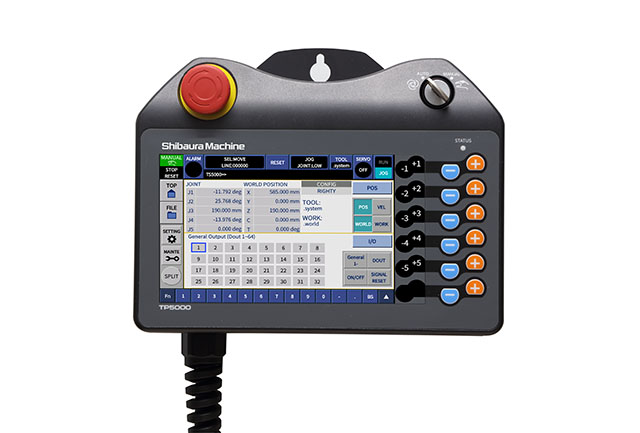
The TP5000 teach pendant is designed to complement the TS5000 controller.
To help more manufacturers adopt SD memory cards, TM Robotics offers training for its SD card copy feature. This training involves used of the TP5000 teach pendant, which is designed to complement the TS5000 controller. Equipped with a seven-inch colour touch-sensitive panel, the pedant is designed to train operators while engaged in manual control of robots — particularly during maintenance, troubleshooting and refinement of the robot's performance. A split-screen display offers simultaneous viewing of two datasets for more efficient robot programming.
The TS5000 controller, with its embedded SD-copy feature, introduces a standardised and intuitive method for cloning robots and has simplified the troubleshooting process. While simple, the solution is powerful and secure enough to directly support engineer’s Maintenance 4.0 initiatives, while they also navigate the complexities of growing Industry 4.0 interconnectivity and evolving data security.
By striking this balance, manufacturers can, to paraphrase Duke Ellington, embrace robot troubleshooting problems ‘as a chance to do their best’.
To find out more about TM Robotics’ and Shibaura Machine’s TS5000 controller and SCARA robots, visit its website.
The content & opinions in this article are the author’s and do not necessarily represent the views of RoboticsTomorrow
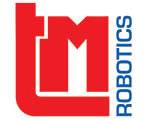
TM Robotics (Americas) Inc
TM Robotics, in partnership with Shibaura Machine, formerly known as Toshiba Machine until 1st April 2020, offers a comprehensive range of industrial robots ideally suited for high-precision assembly, machine loading/unloading and material-handling applications that can be dust proof, clean room, or IP65/67. The company's extensive product line starts with a Cartesian solution available in thousands of combinations from single actuators to four-axis solutions; six-axis solutions that can include precise vision-control; and a complete range of SCARAs from low cost to the industry-leading SCARA with 1200-mm reach that can carry up to 20 kgs. TM Robotics sells and services robots throughout Europe, the Middle East, India, Russia, and Africa, as well as North, Central, and South America, from headquarters in Hertfordshire, England and Elk Grove Village, IL, USA. For more information, visit www.tmrobotics.com or follow us on Twitter, LinkedIn and YouTube.
Other Articles
Decorating plastics with robotic precision
Giving lens cleaning cloths a robotic hand - Robotic automation for textile processing
Investing in the UKs injection moulding sector - The case for all-electric machines and robotic integration
More about TM Robotics (Americas) Inc
Featured Product
